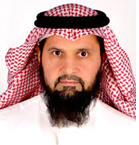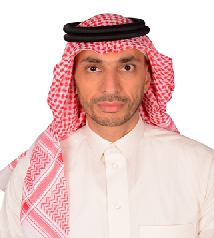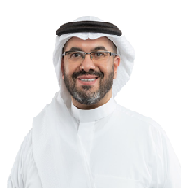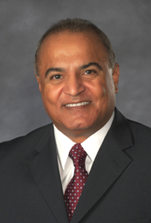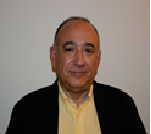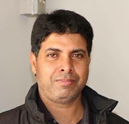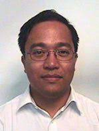Keynote Speakers
Eng. Nassr Alqahtani Assistant Minister of Electricity Affairs | Title: The role of the Ministry of Energy in supporting the Kingdom's Vision 2030 projects and renewable energy, mining and digital transformation initiatives
Short Biography: Nasser Qahtani is the Assistant Minister for Electricity Affairs, Ministry of Energy, where he is overseeing the development and implementation of Electricity Sector's policies and strategies. Before joining Ministry of Energy, Nasser held many executive positions in public and private sectors, he used to be the CEO of Water and Power sector in Abunayyan group, CEO of Unigaz Arabia, Vice-Governor of Regulatory Affairs, Electricity and Cogeneration Regulatory Authority (ECRA) of Saudi Arabia (Currently WERA). Nasser has more than 25 years of experience in energy industry where he assumed various technical and managerial roles in the oil, gas and utilities industries, where he was heavily involved in strategy and business development, engineering, manufacturing, project management, facilities commissioning, operation and maintenance. Nasser earned a Bachelor’s degree in Electrical Engineering from King Saud University and an MSc degree in Electrical Engineering from Texas A&M University and an MBA degree from Strathclyde Business School. Also, Nasser holds the Chartered Financial Analyst®️ designation. |
Dr. Tariq Nada Vice President of Water at ACWA Power | Title: The future of Desalination in inegartation with renwable energy Short Biography: Based at the headquarters of ACWA Power in Jeddah, KSA, Dr. Nada is assigned as the Vice President for Desalination in ACWA Power. He joined ACWA Power in 2015. He drives the technical functions and processes of ACWA Power’s desalination projects and works in accordance with its vision and strategy in Saudi Arabia and the global markets. Dr. Nada has an in-depth experience and expertise over 22 years in the Desalination industry, including the full cycle development of bid proposals for Independent Desalination Project tenders IWP and dealing with projects executions and Portfolio management. Dr. Nada has the expertise in commercial and technical areas including O&M, profitability, and sustainable approaches & strategies. Also, he has been part of R&D and related academic nature in Glasgow university Scotland of Desalination technology. He is member of the boards of many ACWA Power’s project companies. And member in the technical committee of International desalination association. Dr. Nada holds a Ph.D. in Desalination Technology from University of Glasgow – Scotland. |
Eng. Majid Al Refae CEO – Desert Technologies Industry, Chairman of Saudi Polytechnical Institute for Renewable Energy | Title: Desert Technologies Industry, Chairman of Saudi Polytechnical Institute for Renewable Energy Short Biography: CEO – Desert Technologies Industry, Chairman of Saudi Polytechnical Institute for Renewable Energy
|
Prof. Mohamed Samy El-Shall Virginia Commonwealth University, Richmond, VA, USA | Title: Nanostructured Materials for Applications in Heterogeneous Catalysis, Energy Conversion and Solar Water Desalination Short Biography: Dr. El-Shall received his B.S. and M.S. degrees from Cairo University, and a Ph.D. from Georgetown University. He did postdoctoral research in nucleation and clusters at UCLA. His research interests include nanostructured materials, graphene and nanocatalysis for energy and environmental applications, gas phase clusters and nucleation. He has published over 295 refereed papers and review chapters (Google Scholar h-index = 60, citations > 14,000), and he holds 11 US patents on the synthesis of nanomaterials, nanoparticle catalysts, graphene, and graphene-supported catalysts. |
Prof. Miguel A. Sierra Universidad Complutense (Madrid – Spain) | Title: Synthesis and Electrocatalytic Behavior of Transition Metal Modulated [FeFe]-hydrogensase mimics Short Biography: Miguel A. Sierra was born in Villamiel (Toledo) in 1960. Bachelor in Organic Chemistry 1982 (UCM, Honors). Organic Chemistry PhD (UCM, Cum Laude, PhD Award) in 1987. Assistant Professor in 1987, post-doc at the Colorado State University (Prof. Louis S. Hegedus) 1988-1989. Associated Professor of Organic Chemistry 1990. Full Professor of Organic Chemistry in 2005. Currently, director of the Bio-Organometallic Chemistry Research Group at the UCM and Coordinator of the Center for Innovation in Advanced Chemistry (ORFEO-CINQA). He has published 217 scientific papers, four books and five patents. Since 2001, he has developed different joint I+D projects with several agrochemical companies (national and international) as well as with the Spanish Ministry of Defense. He is consultor of the Chemical Weapons Verification Laboratory of Spain (LAVEMA). He has been member of the Scientific Advisory board of the Organization for the Prohibition of Chemical Weapons (OPCW, The Hague, 2002-2009), the Secretary of the Organic Chemistry Group of the Spanish Chemical Society (RSEQ-GEQOR, 2005-2012), and a member of the board of this society (2006-2012). Dr. Sierra has been awarded with the Military Cross (white badge) in 2003 and with the Ignacio Ribas and Felix Serratosa Medals from the Organic Chemistry Division of the Spanish Chemical Society (RSEQ, 2013, 2019). He has supervised 26 PhD students and currently supervises 6 PhD students. Apart from lecturing in different universities and scientific meetings, he is a regular speaker in topics related with chemical weapons destruction, disarmament, and the interrelation between chemistry and society. Dr. Sierra is the General Editor of Anales de Química, the flagship magazine of the RSEQ, and he is coeditor of the European Journal of Organic Chemistry. His current research interests are the development of hydrogenase mimics to produce hydrogen, the development of DNA/RNA transition metal complexes, the synthesis of new iron-chelating agents and study of the mechanisms of iron-transfer in plants, and the study of degradation and decontamination processes of chemical warfare agents (CWA). |
Prof. M. Rabiul Awual Curtin University, Australia | Title: Composite Sensor Ensemble Materials for Renewable Energy and Environment Short Biography: M. Rabiul Awual received his PhD degree in industrial and environmental science and engineering in 2008 (Kumamoto University, Japan). After PhD, he was awarded NIMS Researcher fellowship and conducted the research successfully for more than 3 years He has published more than 161 papers in reputed international journals. He is currently appointed Principal Scientist at JAEA and Adjunct Professor at Curtin University, Australia. His research activity has covered a wide range in the areas of synthesis and analysis of new materials, using the materials for rare-earth metal/diverse ions extraction optically, purification of contaminated water with arsenic/phosphate/selenite, precious metals extraction, fission elements separation, lanthanide separation and recovery, actinide processing, organic-inorganic impregnated materials preparation, catalyst as renewable energy. |
Prof. Mohammed Ashraf Gondal King Fahd University of Petroleum and Minerals Dharan, Saudi Arabia | Title: Preparation of Advanced Nanomaterials Using Innovative (PLAL) Method and Their Applications in Fabrication of Cost Effective Third Generation Solar Cells Short Biography: Dr. Mohammed Ashraf Gondal is a Distinguished Professor at the Physics Department, Director/coordinator of Laser Research Group at King Fahd University of Petroleum and Minerals (KFUPM), Senior Research Fellow of K. A. CARE, and Visiting World Class Professor (MOE Indonesia). He received his Ph.D. degree in Applied Physics from the University of Bonn (Germany). He worked on many collaborative research projects with scientists from world-renowned universities including MIT, Free University Berlin, Heidelberg University Germany, Nanjing University China, NUS Singapore, and the University of Exeter England. His research interests are in the areas of lasers, nanotechnology, photonics, quantum optics, materials science, renewable energy harvesting (third generation solar cells), energy storage (supercapacitors), applied/chemical physics, sensors, laser remote sensing (LIDAR), environmental pollution monitoring, development of laser-based analytical techniques (PAS, LIBS, LEI), wetting & nonwetting surfaces for oil-water separation & self-cleaning applications, synthesis of nano-composites and quantum dots using novel Pulsed Laser Ablation in Liquids Technique (PLAL) as well wet chemical methods and their novel applications in corrosion inhibition, petrochemicals, photo-catalysis for production of high-value hydrocarbons (CO2 utilization) , green hydrogen production by water splitting, removal of organic pollutants as well water disinfection of bacteria and pathogens, cancer treatment. In addition to cutting-edge applied research, he is working on the design and fabrication of lasers as well as laser-induced atomic and molecular spectroscopy as fundamental research for the understanding of the dynamics of atoms and molecules. Dr. Gondal has published over 601 research papers in international journals & conferences, a book as well as 13 book chapters, 30 US patents, H-index 57, and over 12800 citations. He is a member of numerous international journal editorial boards and winner of many national and international awards including the prestigious Al-Marai Scientific Innovation Prize. Based on his high number of citations, H index, and ISI publications, he has been listed among the Top 2 % of world-renowned scientists consecutively over the last few years as per data published by Stanford University, each year. Due to his Distinguished Contribution to science, education and community services to the Kingdom, he has been honored with Saudi Citizenship by His Majesty King Salman Ben Abdulaziz. |
Dr. Qiao Chen Chemistry Department, University of Sussex, Falmer, Brighton, UK | Title: Developing nanostructured metal oxides for photoexcited hydrogen production Short Biography: Dr. Qiao Chen is an expert insurface science and nanotechnology. He has studied the self-assembly of organic molecules and their interactions with the substrate. Different methods for synthesizing nanocrystalline metal oxide nanostructures have been developed with the aim of applying in many aspects, including: 1. harvesting solar energy as solar cells and hydrogen production; 2. Chemical and medical sensors; 3. environmental treatment; 4. Photocatalytic chiral synthesis; 4. Drug delivery; and 5. Radical mediated synthetic chemistry. In 2010, the group was granted the Veeco Labs Energy Innovation Award for developing nanostructured materials for hydrogen production |













































